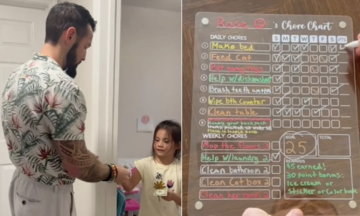Finding love with a colleague isn't uncommon. Barack and Michelle Obama met at a Chicago law firm. Two well-known Good Morning America anchors left their partners for each other. A 2017 Stanford University study found that 1 in 10 American couples met at work. Forbes' latest survey shows that 60% have experienced a workplace romance.
According to American marriage therapist Annie Wright, it's more common than people admit. These relationships often start with curiosity and unspoken longing before turning into action. For many, it's not just a new romance, but a way to rediscover a lost part of themselves.
History shows this isn't a new phenomenon. Historian Julie Berebitsky has documented office romances as far back as the 19th century.
So why are workplace romances so common? According to organizational behavior professor Vanessa Bohns (Cornell University), we spend at least half our waking hours at work. The mere exposure effect makes familiarity attractive, and the propinquity effect makes those in close proximity more likely to bond. A famous study found that people are more likely to develop close relationships with their next-door neighbors than with those four doors down.
"Just seeing someone regularly can make us feel more comfortable and closer to them," Bohns said.
Moreover, colleagues share goals, pressures, and joys. Wright calls this "raw material for emotional intimacy." So, while the workplace might be considered inappropriate for intimacy, in many ways, it's quite natural.
"We dress up, solve problems together, or feel seen and admired in ways we might not be at home," Wright said. "Being noticed by someone at work can be intoxicating, especially if you feel overlooked at home."
 |
Workplace affairs are more common than the numbers suggest. Photo: BI |
Workplace affairs are more common than the numbers suggest. Photo: BI
She's particularly noticed a rise in workplace romances among those in their 30s to 50s. This is a stage where people often question their marriage, career, and purpose in life. "It's not just about infidelity, it's about personal identity," Wright said.
If you're married with children, you and your partner have likely navigated the mundane challenges of childcare costs, packed lunches, and dish duty. Wright calls this the "grind" phase of a relationship.
An emotional connection with a colleague can "pierce through the autopilot" of family routine, awakening buried parts of yourself. "What they often try to figure out in therapy with me isn't 'should I pursue this?' but 'what is this awakening in me?'" Wright said.
Returning to the "kiss-cam" embrace, its virality mirrors why workplace romances are popular in pop culture, as seen in "Scandal," "Grey’s Anatomy," and "The X-Files."
And according to experts, meeting someone at work isn't inherently wrong, but it is complex. The Society for Human Resource Management (SHRM) research suggests workplace romances can increase the risk of awkward or hostile work environments and conflicts of interest.
The biggest question to consider is whether there's a power imbalance. Does one person have control over the other's career? Companies should proactively establish policies to protect those involved, as well as their colleagues, from ambiguous situations.
If you find yourself in such a relationship, Wright advises taking time to consider which emotional needs are being met, especially if you're already in a committed relationship. Sometimes, amidst spreadsheets and group chats, we not only find connection, but also rediscover ourselves.
Bao Nhien (According to BI)












